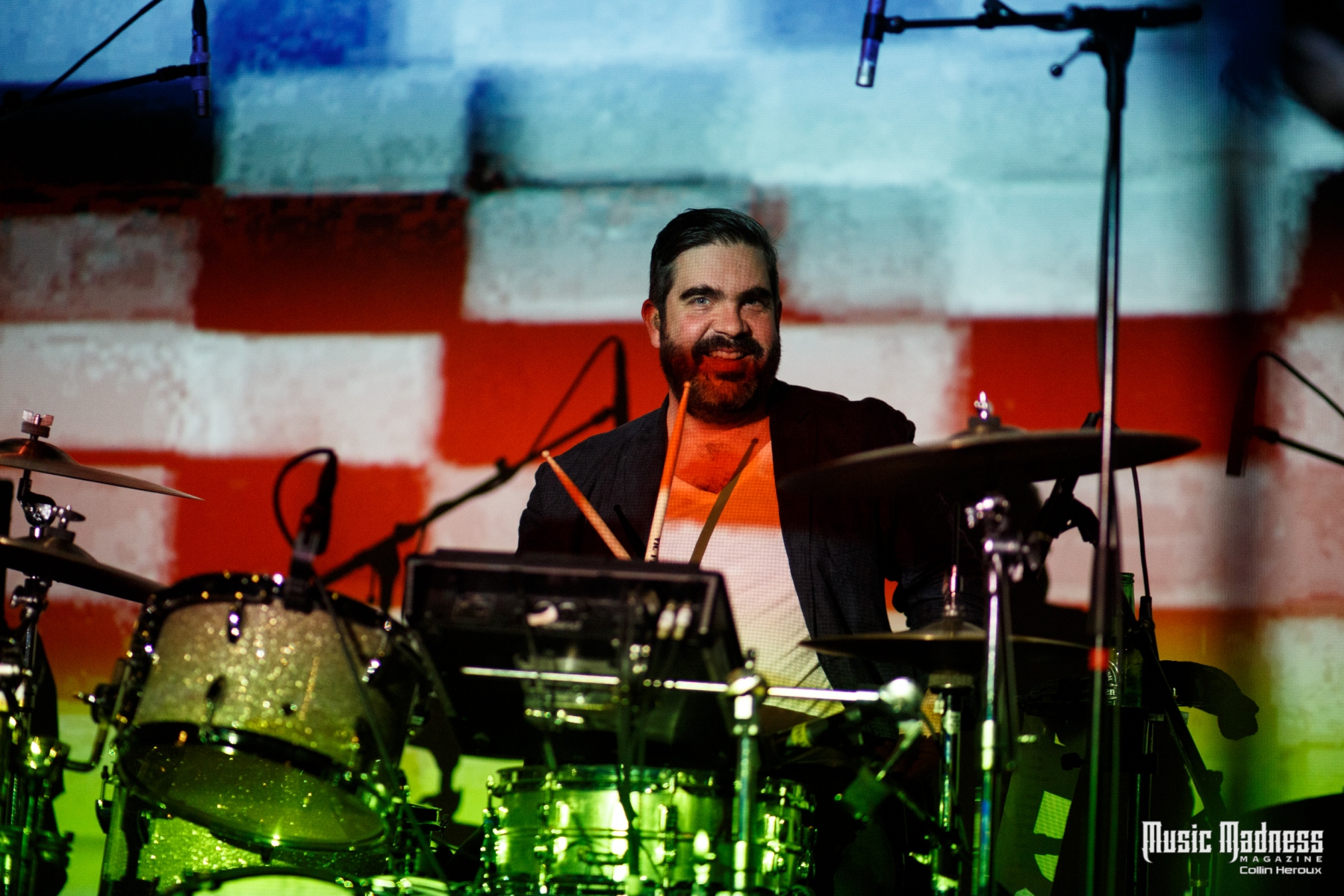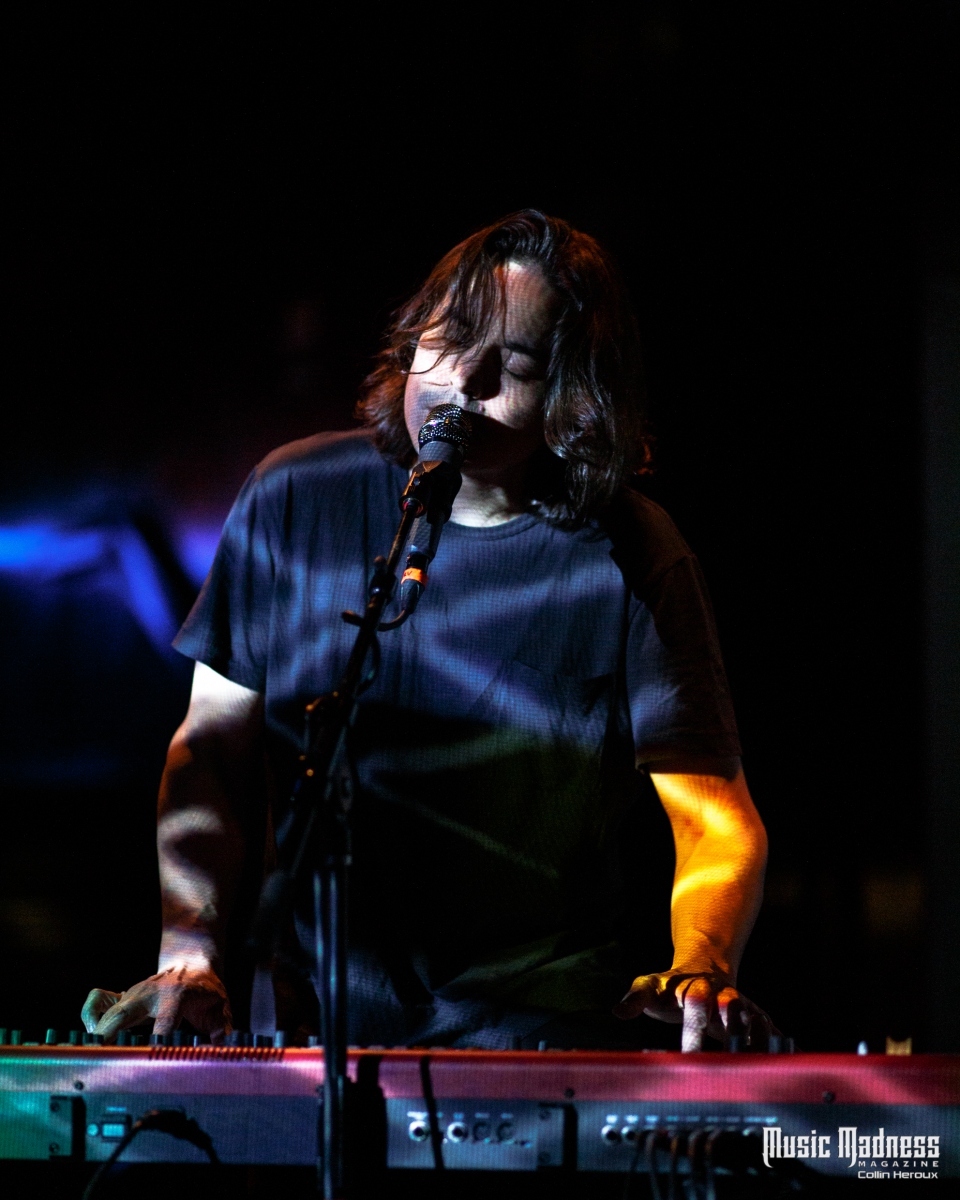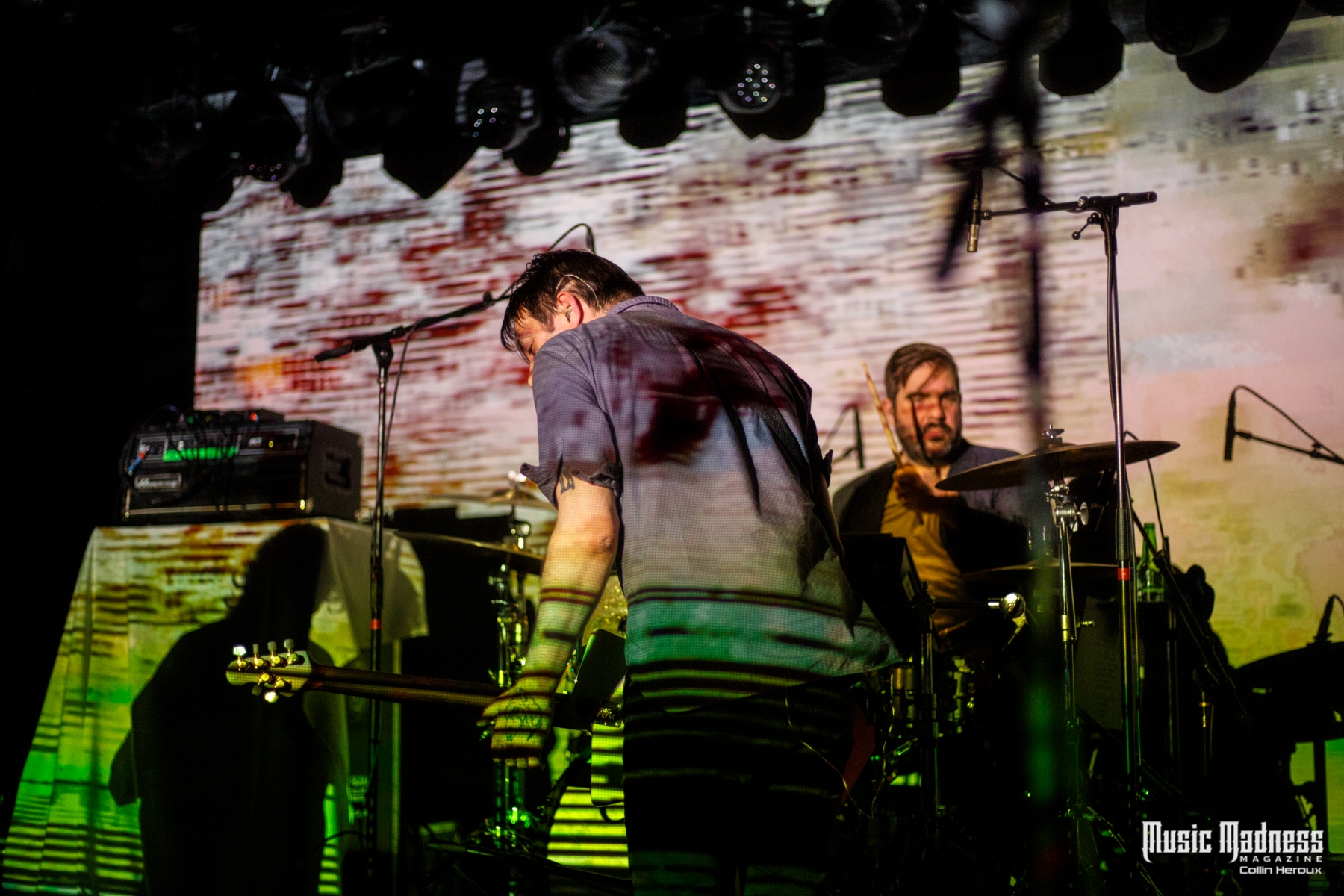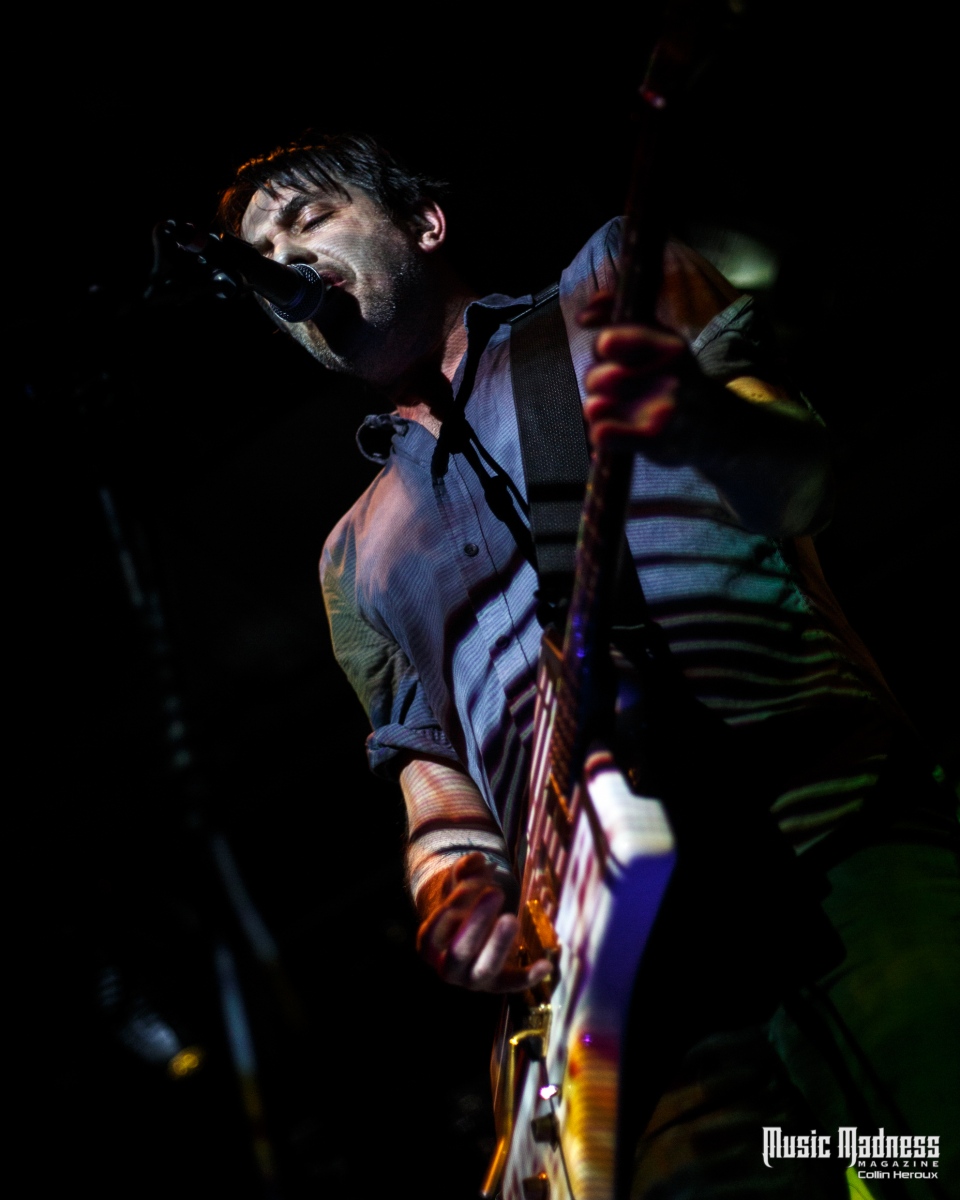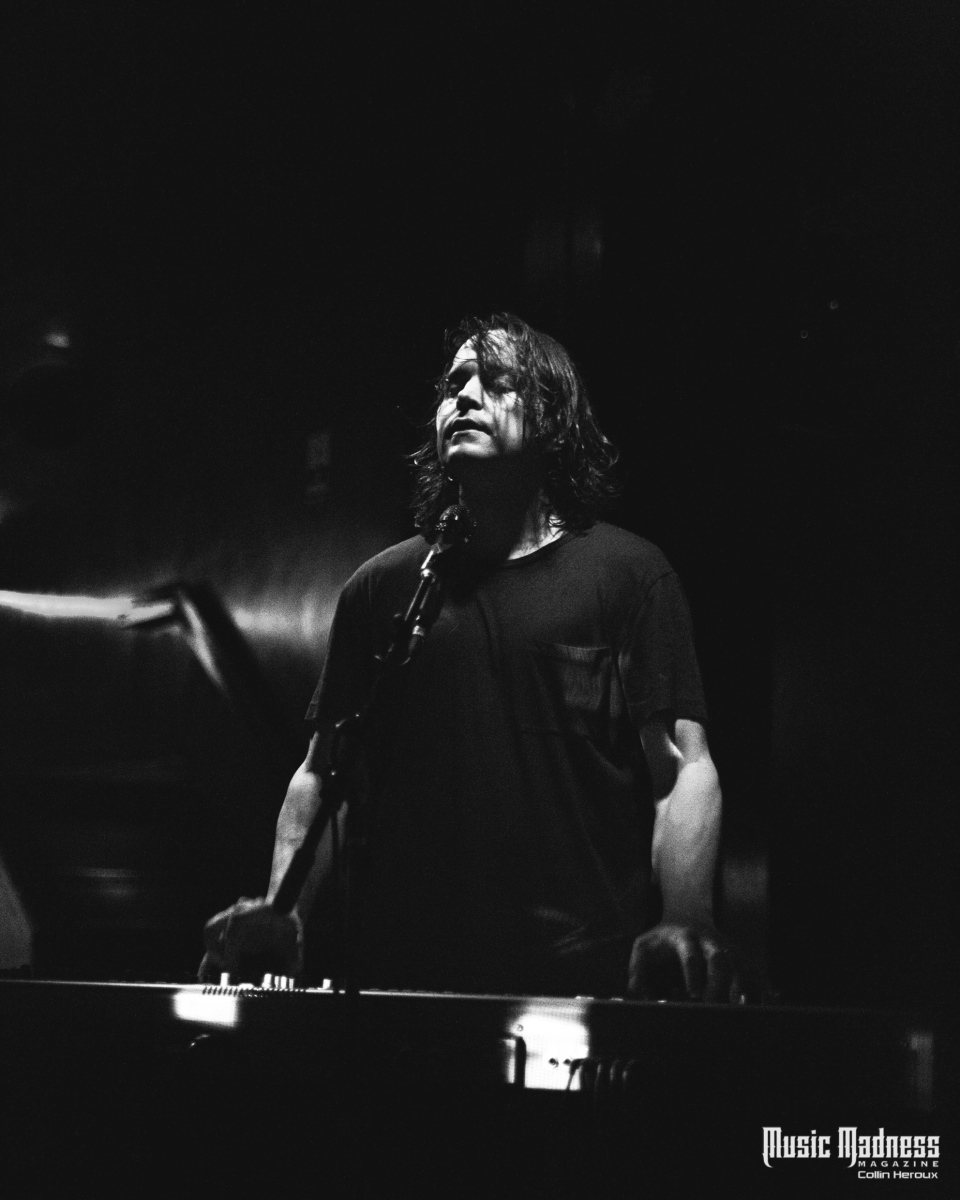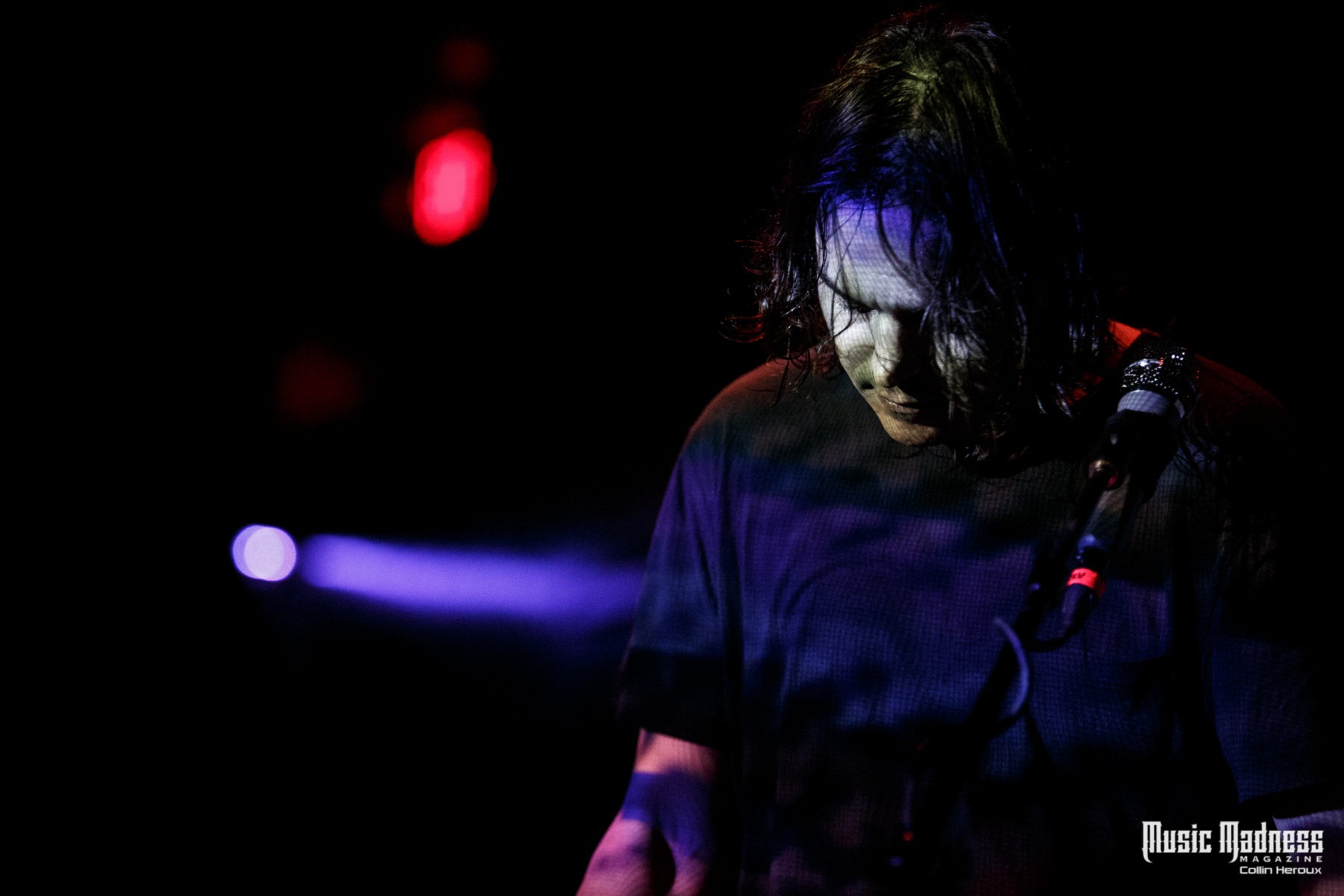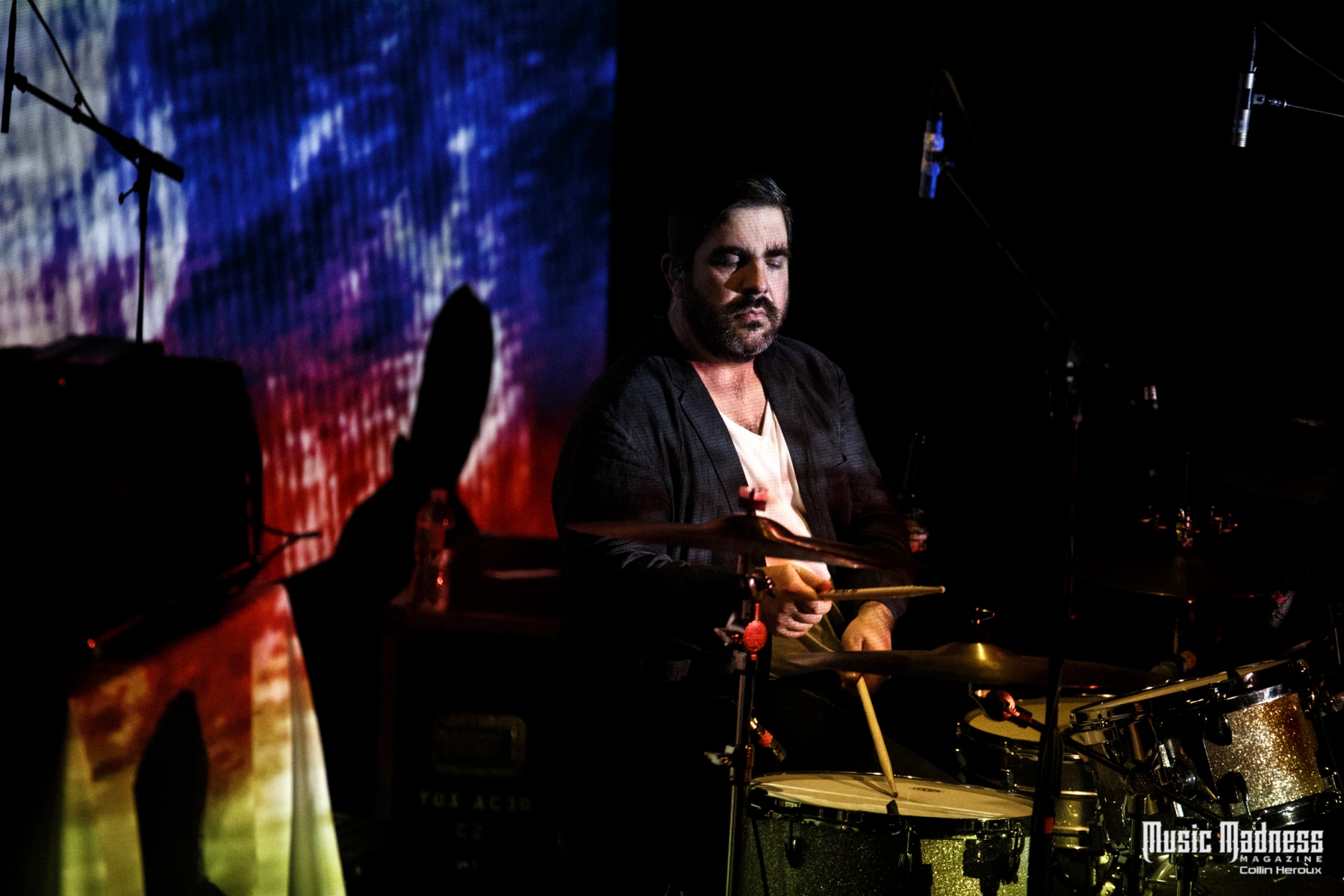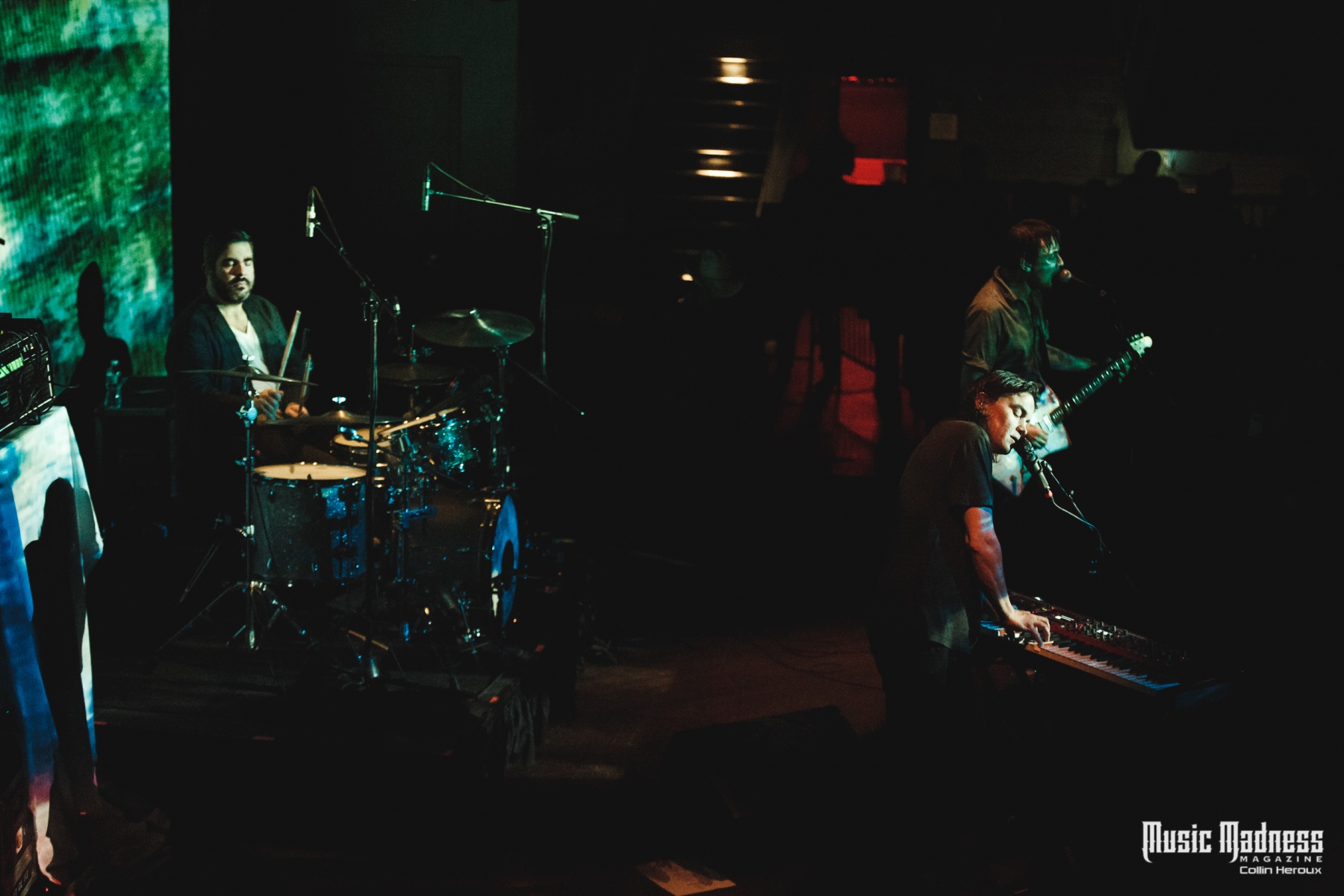
The 2010s saw many a reunion for some of the most storied indie rock bands of the prior decade – with varying degrees of success. But among all the bands to try that trick, Wolf Parade was a natural fit, precisely because each of its two frontmen has been so creatively fulfilled elsewhere in the interim. There’s no sense of rehash or desperation; this reconvening of some of the minds who defined the notion of “indie rock” in the mid-00s is blissfully unconcerned with anything beyond making art together again. Thus far, this second wave has produced one EP and two albums, most recently Thin Mind, whereupon the band continues to chart their own strange, off-kilter course through music under the stewardship of guitar Dan Boeckner and keyboardist Spencer Krug.
More than any other band that comes to mind, Wolf Parade spotlights a songwriting duality that perfectly encapsulates the concept of yin and yang: two discrete parts in unison, each distinctly itself, while containing a touch of the other for balance. Stage-left, Boeckner has found success melding his singular, jagged style of guitar with synths from the Soviet bloc in the bands Handsome Furs and Operators. Across from him stands Krug, who cut his teeth as part of Frog Eyes and went on to launch two more projects, Sunset Rubdown and Moonface – all anchored equally by his ponderous piano and penchant for labyrinthine lyricism.
Together, Boeckner and Krug have come to symbolize one of the most successful interdependent relationships in modern music. Trading lead vocal duty from song to song, they’ve perfected the art of balance in their songwriting. No matter who’s singing, both piano and guitar share in iconic melodies that have quite literally inspired a whole other generation of musicians, notable among them Will Toledo of Car Seat Headrest, who gave a lyrical nod to the duo in the nascent days of that band.
Now a three-piece after the departure of longtime bassist Dante DeCaro, Krug takes a moment during the band’s set at Boston’s Paradise Rock Club to remark on the ways their different personalities are represented by their on-stage drinks. Drummer Arlen Thompson is drinking what is only identified as “a beer”; Boeckner has a tequila and lime, which Krug reckons is a representation of his coolness; and Krug himself is drinking organic red wine. For such everyday objects, it’s an illuminating observation – while all three are jovial and gracious to the audience, Boeckner moves around the stage with endless reserves of energy as he shreds his guitar, Thompson keeps time with the unfailing reliability of the “common ale”, and Krug has a certain scholarly crowd anxiety that might be considered stereotypical of a red wine-sipping pianist.
In any event, all three seem perfectly suited to their niche and role in the band, and it’s produced one of their most interesting albums to date in the form of Thin Mind. As ever, it demonstrates the band’s talent for marrying the leading piano and guitar riffs, whose divergences are as interesting and moving as those times when they line up and complement each other. Bathed in light of constant projections, a new addition to the Wolf Parade tour that Boeckner employed recently with Operators, the band was as animated as ever, and while many years have passed since their debut, the band’s cohesion is still well intact, as are their experimental tendencies.
In the keyboard end, while Krug has never shied away from transforming the sound of his instrument wildly, Thin Mind sees him venturing even further afield. ‘Against the Day’ goes nearly full chiptune, recalling low-bitrate game music of decades past with its simulated woodwinds, with Thompson joining in the transformation as well, playing mostly from a drum pad for the song. A Boeckner-led tune, it’s interesting to hear the sound and imagery of Operators bleed into Wolf Parade, and Krug taking over lead vocals in the bridge makes the track even more notable, as an outright exchange of vocal duties within a song is rare in Wolf Parade’s catalog.
A character from Krug’s time as Moonface appears as well, the titular Julia from ‘Julia Take Your Man Home’. Arguably the standout track of the album, it’s a deeply funny, sad, and meta look at a fictionalized, impeccably morose version of himself, laden with references to past material. Krug’s voice, unmistakably warbling, turns its attention to its master with fascinating results. “The beating heart of a lonely man is nothing but an unheard decrescendo,” Krug sings, couching that incredibly poetic moment in the voice of a character who is portrayed as being nothing short of a mess.
On Thin Mind, there’s a thinner membrane than ever before between each of these artists’ other bands, and the combination of these elements into something that is simultaneously new while still recognizable as Wolf Parade has yielded an album that stands out prominently even among a discography that shaped the past decade of music.
The band focused heavily on Thin Mind in their set, showcasing tracks like ‘Town Square’ that play on their formula, Krug taking vocals while Boeckner rings out loudest instrumentally with his guitar. But the band took pleasure in revisiting old stalwarts as well, looking back to their de facto classic Apologies to the Queen Mary not only for iconic anthems like ‘I’ll Believe in Anything’, but also for gems like ‘Same Ghost Every Night’, a pensive, Boeckner-led dirge, indebted to his earlier project Atlas Strategic, that saw him straining his vocal cords as much as the strings of his guitar as it builds toward its thunderous conclusion. They also deigned to play ‘Disco Sheets’ from one of their earliest releases. giving the originally low-fi and distortion-laden tune new life through the lens of the band’s more developed sound.
Closing their set with their 11-minute epic ‘Kissing the Beehive’, beads of sweat flew forth from Krug’s long, dark hair, and Boeckner stalked back and forth across the stage between Krug and Thompson, savoring the locked groove that drives the song forward in its closing minutes. From a vantage point in the upper balcony of the club, it was a spectacle to see the band moving as a unit, and to feel the lineage and the history therein. Simultaneously forward progress and reinvention, Thin Mind makes the case that this trio still has many more twists and turns to explore.
Review and photos by Collin Heroux

